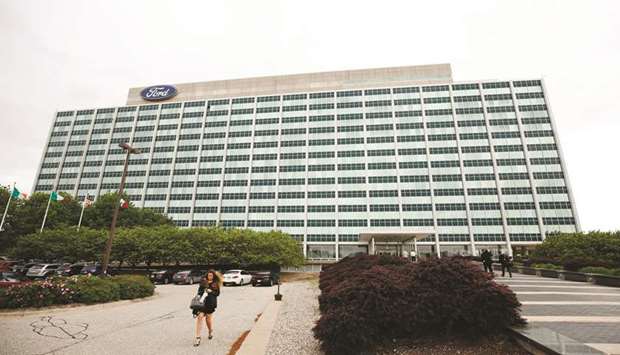Ford Motor Co and Indian vehicle maker Mahindra and Mahindra said yesterday they were looking at teaming up again for a new strategic alliance.
In a joint announcement the automakers said the potential alliance would explore cooperation in areas like connected cars and electric vehicles and sourcing, among other things.
This is the second time the two would be joining forces in India, Ford having re-entered India in the 1990s through a joint venture with Mahindra before eventually expanding to manufacture and sell vehicles on its own.
The new alliance comes as foreign car makers like Fiat Chrysler, Volkswagen and General Motors have struggled in India where nimbler rivals such as Maruti Suzuki and Hyundai Motor have cornered roughly two-thirds of the market.
In May General Motors said it would stop selling cars in India at the end of this year after 20 years battling in one of the world’s most competitive markets where small cars make up the bulk of sales.
Mahindra and Ford said their prospective alliance would would give Ford access to Mahindra’s distribution network in India while Mahindra would benefit from Ford’s market reach in other developing economies.
“Teams from both companies will collaborate and work together for a period of up to three years.
Any further strategic cooperation between the two companies will be decided at the end of that period,” Ford and Mahindra said.
The alliance follows an outline deal announced in February between Toyota Motor Corp and Suzuki Motor Corp, whereby Toyota is expected to benefit from a supply chain that has helped Suzuki dominate India’s market while Suzuki hopes to draw on Toyota’s innovations in automated driving, artificial intelligence and low-emission vehicles.
Automakers worldwide are in the throes of deciding how best to adapt to changing technologies, from electric vehicles to autonomous driving, that require hefty investment and have created new rivals, such as Alphabet Inc’s Google and Tesla.
“There are definitely some very good synergies in these two companies coming together.
It all now depends on how they are able to share their platforms and how they leverage each other’s capabilities going forward,” said Kaushik Madhavan, director, automotive, at consulting firm Frost and Sullivan.”
The overall long-term roadmap however, is still unclear.”
Toyota said last month it also planned to take a 5% share in smaller Japanese rival Mazda Motor as part of an alliance that will see the two build a $1.6bn US assembly plant and work together on electric vehicles.
Ford is among the top exporters of cars from India and manufactures and exports vehicles and engines from its plants in Chennai, Tamil Nadu and Sanand, Gujarat.
From April to end-August this year, Ford sold 36,703 passenger cars in India compared with Mahindra’s 96,051.
But Ford also exported 74,591 vehicles, which accounted for just over a quarter of the country’s total exports in that period, whereas Mahindra only exported 2,252 vehicles.
Ford said the growth potential in the sports utility market and the increasing importance of affordable electric vehicles in India were aligned with its strategic priorities.
The US company has already invested more than $2bn in India and plans to spend more to set up a global engineering centre in the southern city of Chennai to help adapt products for the local market and changing consumer trends.
It is also increasing its focus on driving down costs by sourcing more parts locally and using more common features across models to achieve economies of scale.

The Ford Motor headquarters stands in Dearborn, Michigan. Ford and Indian vehicle maker Mahindra and Mahindra said yesterday they were looking at teaming up again for a new strategic alliance.
